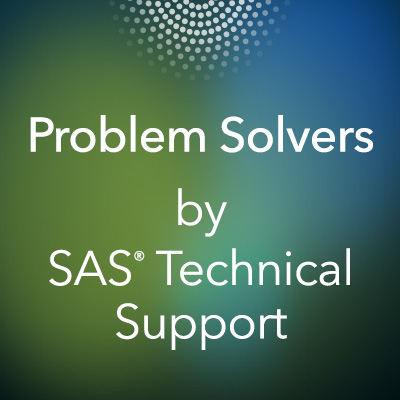What is data scientist?
Data scientists are a new breed of analytical data expert who have the technical skills to solve complex problems – and the curiosity to explore what problems need to be solved.
SAS Data Science Advantage:
Comprehensive Training:
Learn big data, advanced analytics and data science your way – in the classroom or in a blended format at your own pace.
Globally Recognized Credentials:
Programs include practice exams and exam vouchers for earning a certification.
Complete Toolset:
Learn using SAS, R, Python, Pig, Hive and Hadoop.
Hands-On Learning:
Get full access to SAS software for learning and practice for the duration of the program.
Real-World Case Studies:
Practical application based on actual case studies enhances your learning.
Personal Coach:
SAS experts are available to guide you, answer questions and keep you on track.
Typical job duties for data scientists:
There's not a definitive job description when it comes to a data scientist role. But here are a few things you'll likely be doing:
Data scientists are a new breed of analytical data expert who have the technical skills to solve complex problems – and the curiosity to explore what problems need to be solved.
Comprehensive Training:
Learn big data, advanced analytics and data science your way – in the classroom or in a blended format at your own pace.
Globally Recognized Credentials:
Programs include practice exams and exam vouchers for earning a certification.
Complete Toolset:
Learn using SAS, R, Python, Pig, Hive and Hadoop.
Hands-On Learning:
Get full access to SAS software for learning and practice for the duration of the program.
Real-World Case Studies:
Practical application based on actual case studies enhances your learning.
Personal Coach:
SAS experts are available to guide you, answer questions and keep you on track.
Typical job duties for data scientists:
There's not a definitive job description when it comes to a data scientist role. But here are a few things you'll likely be doing:
What’s in a data scientist’s toolbox?
These terms and technologies are commonly used by data scientists:
A side from those qualities, you’ll also need a solid understanding of:
These terms and technologies are commonly used by data scientists:
A side from those qualities, you’ll also need a solid understanding of:
- Statistics and machine learning.
- Coding languages such as SAS, R or Python.
- Databases such as MySQL and Postgres.
- Data visualization and reporting technologies.
- Hadoop and MapReduce.
Email us: info@epoch.co.in
SAS Training & Placement Programs with Internship*:
Epoch Research Institute India
Largest and Oldest SAS Training Institute
Epoch Research Institute Links:
Epoch | Facebook | Twitter | LinkedIn
Epoch Research Institute India Pvt. Ltd.
Ahmedabad | Bengaluru | Chennai
+91 79 40327000|+91 80 49077000|+91 44 42641500
SAS Training & Placement Programs with Internship*:
Epoch Research Institute India
Largest and Oldest SAS Training Institute
Epoch Research Institute Links:
Epoch | Facebook | Twitter | LinkedIn
Epoch Research Institute India Pvt. Ltd.
Ahmedabad | Bengaluru | Chennai
+91 79 40327000|+91 80 49077000|+91 44 42641500
#SASELEARNING,#SASELEARNING,#SASONLINETRAINING,
#SASONLINETRAININGFORBEGINNERS,#LEARNSASPROGRAMMINGONLINE,
#SASCLINICALONLINETRAINING,#SASBASEONLINETRAINING
#BIGDATASASTRAININGEPOCH,#SASBIGDATATRAINING#EPOCHRESEARCHINSTITUTE,#SASTRAINING,#EPOCHSASFEEDBACK,#CLINICALSASPROGRAMMING, #EPOCHCLINICALSASPROGRAMMING.
#SASONLINETRAININGFORBEGINNERS,#LEARNSASPROGRAMMINGONLINE,
#SASCLINICALONLINETRAINING,#SASBASEONLINETRAINING
#BIGDATASASTRAININGEPOCH,#SASBIGDATATRAINING#EPOCHRESEARCHINSTITUTE,#SASTRAINING,#EPOCHSASFEEDBACK,#CLINICALSASPROGRAMMING, #EPOCHCLINICALSASPROGRAMMING.


No comments:
Post a Comment